
 Flash News
Flash News
DP-ASHM secures two mandates in Kukës, Isuf Çelaj the most preferred voter
The Director of the ARA appears before SPAK
Berisha calls for protest on May 16: Elections were dictated by criminal gangs
"Toyota Yaris" file/ SPAK demands 6 years in prison for lawyer Radovan Çela
Shkodra, family members find 65-year-old woman hanged
A house for a vote? Soft loans for the administration before the elections
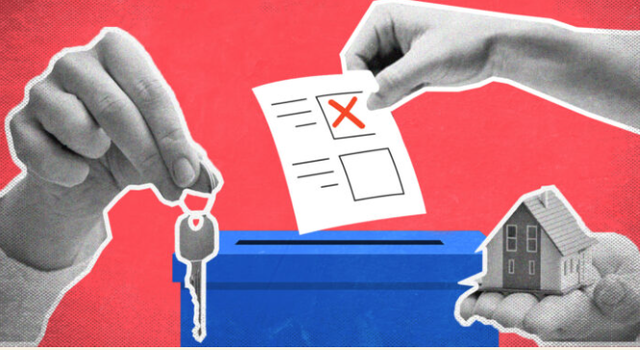
In March of this year, as the country entered the fever of the May 11 parliamentary elections, the government announced a "relief" program for public administration employees. A loan with 0% interest, on the condition that beneficiaries do not resign for the next five years.
1980 applications were registered for this scheme by employees of 12 public institutions, according to official data from the Ministry of Economy, Culture and Innovation. On paper, a social policy to improve access to housing. In reality, a dubious intervention in the middle of the campaign, with elements of electoral pressure.
This "gift" on the eve of elections constitutes a direct subsidy that creates an immediate financial advantage for administration employees.
Throughout 2025, the state budget will spend about 50 million lek to finance this program, a calculation made taking into account the average payments for subsidizing the interests of past loans. What makes the government's real interest in the state administration doubtful is the fact that this call was announced only 2 months before the parliamentary elections, on March 11, adding to the suspicions that it may have been made to influence the group of public sector employees, who are a segment with electoral weight.
This “facilitative” loan taken out by public administration employees forces the latter not to request resignation for the next five years, because the loan is converted into commercial, thus increasing the interest rate. The mechanism of converting the loan into commercial creates a direct financial dependence, which limits economic freedom and mobility in the labor market.
"This constitutes a structural economic barrier that hinders professional autonomy and keeps employees tied to the institution. In the long term, this reduces productivity and labor market competitiveness, and potentially increases informality due to the obligation to remain in ineffective positions," said economic expert Eduart Gjokutaj.
The main criteria for an employee to benefit from the facilitated loan are: not having a residence in his or her name or that of his family, not having real estate or not currently being a beneficiary of social housing programs, according to point 15/1, article 2, of Law No. 22/2018, "On Social Housing", as amended.
“Under market conditions, the real interest rate for such loans is usually 4–8% in Albania, which means that employees directly benefit from thousands of euros in savings for each loan. This constitutes privileged economic differentiation of a group of voters associated with the public sector, which has the potential to influence their electoral behavior.” – says Mr. Gjokutaj.
The Council of Ministers, in decision No. 468, dated 26.7.2023, determined all the criteria that a public administration employee must meet to benefit from the concessional loan, and if the employee meets them, he may lose the right if he does not find housing within a year.
"The employee, beneficiary of the public administration, who has not found the apartment within 1 year from the date of publication of the winning list or when he has not been qualified by the financial institution as suitable to conclude the loan contract, loses the right to benefit from the facilitated loan," the VKM states, among other things.
Through a request for information addressed to the Ministry of Economy regarding this call, this institution responded that the facilitated loan program for public administration, that is, those who hold the status of civil servant, or have an employment contract without a specified term.
"The total number of applications at the close of the application process was around 1980 for 12 beneficiary institutions" - MEKI stated in the official response.
The Electoral Code in Article 91, point 4, states: “Four months before the election date until the formation of the new government after the elections, the proposal, approval or issuance of legal or sub-legal acts, which provide for the granting of benefits to certain categories of the population, such as acts that provide for… economic or social support, is prohibited.”
The program was announced on March 11, within the prohibited deadline, but laws are often violated with both feet by presenting programs as "social goods."
"We are dealing with a distortion of the correct behavior of the state in the electoral campaign. The Central Election Commission, through its monitoring structures, should have identified, verified and taken the relevant decisions provided for by the electoral code." - says Afrim Krasniqi, director of the Institute of Political Studies.
This program could have been presented to public administration employees months before, or a few months after the elections, but its presentation at this time comes as a clear message of indirect pressure on the public administration electorate./ Citizens.al
Latest news


SP towards full legislative control, what does this mean for democracy?
2025-05-13 22:36:52

'Braçeee, Braçeee', the counter grabs the attention of CEAZ 5, laughter erupts
2025-05-13 21:55:09

Tirana hosts European leaders on May 16, summit agenda revealed
2025-05-13 21:11:22
Counting closes in Vlora, PS gets 9 mandates, DP remains with 3
2025-05-13 20:59:14
DP representative at the CEC: SP votes in the diaspora, filled by the same hand
2025-05-13 20:50:55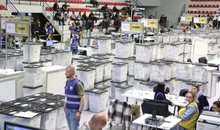

BIRN: European Union concerned about violation of electoral standards in Albania
2025-05-13 20:21:37
A house for a vote? Soft loans for the administration before the elections
2025-05-13 20:10:01
DP-ASHM secures two mandates in Kukës, Isuf Çelaj the most preferred voter
2025-05-13 20:01:22
Poll/ Were the May 11 elections fair?
2025-05-13 19:27:22
Elections 2025/ Counting of diaspora votes continues, results
2025-05-13 19:21:11
Lapaj: We are close to a mandate in Fier, we will take it from the SP
2025-05-13 19:17:33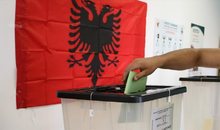
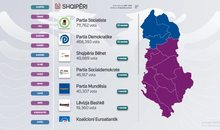
82 mandates, a reward for what?
2025-05-13 18:36:46
International cyber fraud network hit, seizures and checks in Tirana
2025-05-13 18:17:08








"Electronic Shkodra" takes to the Eurovision 2025 stage tonight
2025-05-13 16:02:42
Discover the 5 reasons to take folic acid even if you are not pregnant.
2025-05-13 15:45:50
Lack of independent media undermined elections, observers say
2025-05-13 15:34:36
The first ballot boxes for candidates in Rrogozhina are being counted.
2025-05-13 15:31:42




Albania has the most underdeveloped agro-industry in the region, Kosovo is first
2025-05-13 14:43:43


Preferential vote counting concludes in CEAZ 69, Skrapar
2025-05-13 14:23:43
The Director of the ARA appears before SPAK
2025-05-13 14:15:18


Berisha calls for protest on May 16: Elections were dictated by criminal gangs
2025-05-13 13:56:19
Aida Hajnaj is excluded from re-running for a second term as head of the BKH
2025-05-13 13:50:26
Accident near 9-year-old school in Korça, car hits student
2025-05-13 13:40:23

Lezha Court releases Elda Hoti's husband
2025-05-13 13:24:50


"Toyota Yaris" file/ SPAK demands 6 years in prison for lawyer Radovan Çela
2025-05-13 12:53:16
Conflict between observers at a CEAZ in Tirana, 7 escorted
2025-05-13 12:44:39
Counting closes in Kamëz, DP leads
2025-05-13 12:37:10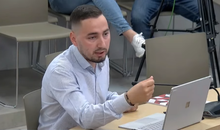

Shkodra, family members find 65-year-old woman hanged
2025-05-13 12:21:03
Alimehmeti: Albania cannot go to Europe with these elections
2025-05-13 12:12:27

Durres Prison 'bastion' of the Socialist Party
2025-05-13 11:49:41
A house in Lezha is engulfed in flames
2025-05-13 11:36:28

Our Putin!
2025-05-13 11:23:36
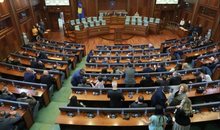
Kosovo Assembly fails to unblock, 15th session fails too
2025-05-13 10:58:49

Voting ends in Berat/ SP gets 5 mandates, DP-ASHM gets 2
2025-05-13 10:40:00
Kikia: Rama's fourth mandate a precedent for democracy
2025-05-13 10:28:22
Democrats win Kavaja convincingly
2025-05-13 10:21:00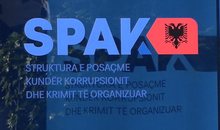


US lifts temporary protection for thousands of Afghans
2025-05-13 09:44:52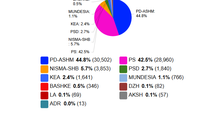
Overturning the result in Lezha, PD-ASHM secures 4 MPs
2025-05-13 09:44:00

Counting suspended in VIP prison, two more ballots found
2025-05-13 09:23:54
European leaders gather in Tirana in search of creative solutions for Ukraine
2025-05-13 09:11:52

Countdown nears, DP seizes lead in Shkodra and Lezha
2025-05-13 08:51:05
Result/ PS wins for the first time in Paskuqan
2025-05-13 08:39:26


Clear skies and cloudy skies, this is the weather forecast for Tuesday
2025-05-13 08:02:42
Morning Post/ In 2 lines: What mattered yesterday in Albania
2025-05-13 07:48:57

Vote counting in Mirdita concludes, DP wins convincingly
2025-05-12 23:40:46
Diaspora vote counting/ Observer - Ballës: Get out, you kicked us out of Albania
2025-05-12 23:27:36
Four almonds a day, 6 direct benefits to the body
2025-05-12 23:15:40
Vllaznia team 'doctor' arrested, dozens of fireworks found in his bag
2025-05-12 23:02:26
Denunciation/Electoral Reward for Noizy
2025-05-12 22:51:44
She won the mandate from the open list in Kukës, here is who Elvira Peka is
2025-05-12 22:38:39
Victory in Kukës, Flamur Hoxhaj: Fruit of the work and program we have done
2025-05-12 22:30:07
Tritan Shehu talks about the election result: Lazarati voted for the DP
2025-05-12 22:30:03
Trump may travel to Turkey for negotiations between Zelensky and Putin
2025-05-12 22:16:46
Counting ends in Kukës district, DP wins 2 mandates
2025-05-12 22:11:27
Egnatia is declared champion of Albania, ending Vllaznia's 24-year dream
2025-05-12 22:03:56


Albanian convict terrorizes prison in Greece, takes guards hostage
2025-05-12 21:36:15
Rama leaves headquarters, does not speak to journalists
2025-05-12 21:26:16
New report, old refrain
2025-05-12 21:18:59
DP gains advantage in Lezha, secures 4 mandates
2025-05-12 21:06:16
DP leads in Kavaja against SP
2025-05-12 20:57:52
In Shkodra, Vllaznia brings together the commissioners of the SP and the DP
2025-05-12 20:43:15
